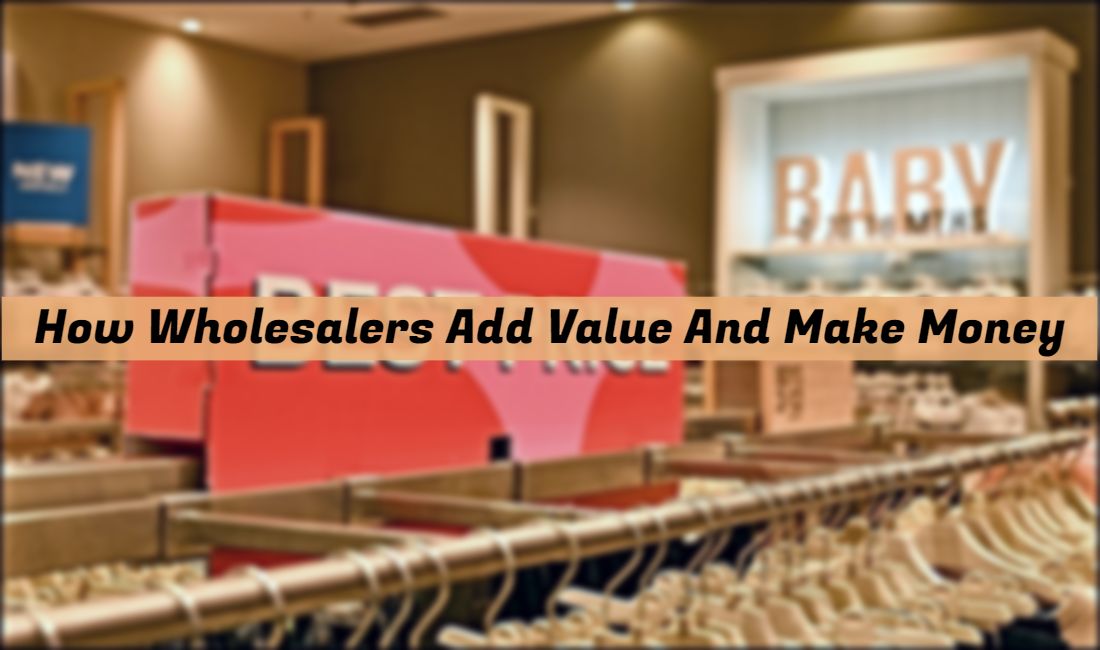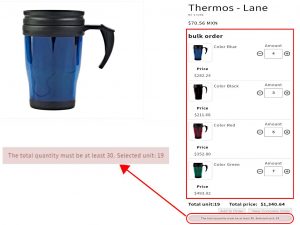
Over the past few years, the wholesale industry has seen considerable changes. Gone are the days when wholesalers were crucial to the supply chain. More and more companies are looking to cut out the middleman and seek other alternatives to distribute their products.
According to Statista, direct-to-consumer sales have increased by 15% from 2019 to 2022, which bypasses traditional distribution channels such as wholesalers. Manufacturers are looking more towards selling directly to customers to cut costs in the supply chain.
That is why it is more important than ever for wholesale businesses to learn how wholesalers add value and make money. So, how do wholesalers add value and make money? This will be the focus of our topic today, where we explore the role of wholesalers and how they are still an essential part of the supply chain because of the value they can add to your business.
The Role of Wholesalers: Connecting Manufacturers And Retailers
Before we know how wholesalers add value and make money, let’s first discuss the wholesaling process and what is done in the industry.
In the simplest terms, wholesaling refers to buying products from manufacturers in bulk and then reselling them to other businesses in smaller quantities at a higher price. The companies that wholesalers usually sell to are retailers, distributors, institutions, and even other wholesalers.
Therefore, wholesalers act as intermediaries between manufacturers and retailers. Manufacturers are more concerned with producing the goods, and retailers want to put all their efforts into marketing and selling their products. That is where wholesalers fill that role in providing a smooth transfer of products into the hands of sellers for final purchase to the end-customers.
It might seem like a simple enough job, but there are intricacies that wholesalers have to go through to ensure this smooth transition of products. From manufacturers to retailers, wholesalers’ jobs have 3 primary jobs. First is purchasing and procurement, where wholesalers must buy the products from manufacturers. Then comes the storing of products. Wholesalers have to be ready to ship products to retailers at a moment’s notice. And finally, wholesalers are tasked with efficiently distributing the products to retailers and sellers across different channels.
All of this has to be done with the customers in mind. Wholesalers must deal with extensive inventories and often have warehouses filled with products to ship to retailers and other businesses. They also have to negotiate prices for buying and selling so that both manufacturers and retailers are happy.
How Wholesalers Add Value And Make Money In 7 Ways
As you can imagine, the wholesaler’s job is stressful. Striking the right balance between manufacturer and retailer satisfaction is very tricky. That is why manufacturers are moving towards cutting off the middleman to cut costs. However, wholesalers can offer value to their customers. Here is how wholesalers add value and make money for both themselves and their customers:
- Bulk Purchasing Power
- Storage And Inventory Management
- Distribution And Logistics
- Product Assortment
- Marketing Services
- Financing And Credit Services
- Risk Mitigation
Way#1 Bulk Purchasing Power
The first value that wholesalers add is their most significant unique selling point: leverage their bulk purchasing power on manufacturers. As they buy in bulk, wholesalers negotiate lower prices per unit. This means that they can resell the products to retailers at marked-up prices for the lower quantities that retailers will buy. This is how wholesalers make money on their purchases, profiting from each transaction.
But how does this add value to retailers and manufacturers exactly? Since they buy at lower prices per unit, the cost is passed down to the retailers, who don’t have the same negotiating power as wholesalers. That means retailers get a sweet deal from wholesalers. And in a win-win situation, the manufacturers get to sell their products in bulk to continue producing more.
Furthermore, wholesalers often establish long-term vendor relationships with manufacturers. This will ultimately add more value for manufacturers and retailers, with exclusive deals and access to new products available earlier than in other stores.
Way#2 Storage And Inventory Management
Inventory management is vital for all B2B businesses, but how wholesalers add value and make money here might seem strange. Wholesalers simplify inventory and order tracking for manufacturers and retailers, which adds value to the supply chain. Wholesalers add an advantage for retailers because they can handle large volumes of inventory for stores and manufacturers by keeping them in warehouses.
This solves the problem for retailers who aren’t able to keep large quantities of stock in stores.
Not only that, but they can also prevent inventory management challenges such as stockouts, reduce storage costs for stores and manufacturers, and help streamline inventory for both parties.
The value is visible, but what about the monetary aspect of it? Wholesalers make money from storage and inventory management by helping retailers and manufacturers. They don’t directly make money because of storage and inventory management. But because of this, they can negotiate better prices for buying in bulk and selling.
Way#3 Distribution And Logistics
The next way that wholesalers add value to the supply chain is by handling distribution and logistics. Making and selling the products are the jobs for manufacturers and retailers. However, wholesalers get the product from the point of origin to store shelves.
Wholesalers have established networking relationships with shipping companies to get the product from manufacturers to retailers. This relieves manufacturers and retailers from the logistical complexities of transporting goods, allowing them to focus on their core activities. Moreover, wholesalers often consolidate shipments from multiple manufacturers, which solves the wholesale business risk through reduced transportation costs and improves efficiency. This coordination of product movement is how wholesalers add value for manufacturers and retailers, as they are the best at doing so.
Like with inventory management, wholesalers make money by being reliable distribution partners. The more trustworthy and efficient a wholesaler is, the more business they can get. That is how wholesalers can make money from dealing with distribution and logistics.
Way#4 Product Assortment
Wholesalers must be ready with a wide range of products for their clients through product assortment. Wholesalers add value to their clients by getting products from multiple manufacturers and bringing them to all the different retail stores. By offering a comprehensive product lineup, wholesalers attract more retailers and increase sales volume, contributing to overall higher revenue for all parties.
Moreover, wholesalers can also aid in product categorization for retail stores. This is an added value for stores as they can deal with product assortment based on their metrics so their clients don’t have to. This allows stores to focus entirely on selling the products at maximum efficiency. So, wholesalers can add value while making money simultaneously with efficient product assortment.
Way#5 Marketing Services
Marketing support is something wholesalers are not most well-known for. However, wholesalers can add value for retailers by helping with key marketing strategies. Wholesalers can collaborate with retailers on merchandising strategies, helping optimize product placement and create attractive displays that maximize sales potential.
Wholesalers can make money from this by providing marketing services at higher prices. It is an added value for retailers that want help in marketing their products without needing to do so themselves. With these data-driven sales optimization through marketing strategies, wholesalers can generate more revenue for all parties involved.
Way#6 Financing And Credit Services
Another significant value that wholesalers add to their customers is through finance and credit services. Large order quantities mean large transactions will take place. However, not everyone can pay the whole price in one transaction. That is where wholesalers can set up various credit services like credit facilities, financing programs, invoice factoring, credit risk assessment, and monitoring.
By offering these financial services, wholesalers allow retailers to purchase goods without immediate payment, providing financial flexibility and easing cash flow constraints. In the meantime, the wholesalers make money from these finance and credit services. So, this value-added also becomes an important way for wholesalers to generate revenue for their business while simultaneously benefitting customers.
Way#7 Risk Mitigation
A hidden value that wholesalers add to the supply chain is reducing the risks across the board. Since wholesalers buy in bulk, they spread the risk involved in the supply chain. Retailers don’t have to worry about stockouts or over-stocking inventory issues because a reliable wholesaler will help monitor inventory and mitigate risks. By identifying and addressing risks in the supply chain, wholesalers help guard the interests of manufacturers and retailers and ensure continuity of operations.
Additionally, wholesalers can also offer flexible ordering and delivery options for retailers when they are in need. The cost for this can be higher than the usual rates, which is how wholesalers can make money through these value-added services. Retailers and manufacturers are happy with not having to bear most of the risk in unexpected market conditions or supply chain disruptions. Meanwhile, wholesalers can generate more revenue and overcome challenges in the wholesale business.
Raise Your Shopify Wholesaling Business To The Next Level With A Bulk Order App
I have told you all about how wholesalers add value and make money, but how can you do that on an eCommerce platform like Shopify? The great thing about Shopify is the third-party app integrations that are possible on your store with the help of the Shopify app store. Here is an example of how you can raise your Shopify wholesaling business to the next level with a mix-and-match bundle app that implements MOQ restrictions to benefit your customers:

You can see here that 19 items are selected. However, the add to cart button is not highlighted and cannot be pressed. That is because the app has an MOQ or minimum order quantity restriction. For wholesale orders, this is crucial. It allows the store to have more control over its inventory and ensures profitability is maintained. On native Shopify, such a restriction is not possible. However, with the app, an MOQ restriction is possible, and it helps wholesale eCommerce stores regulate their inventory better.
The store also allows all the product variants to be shown on one page, where the quantity per variant can be selected. This will enable customers to choose the number of items they wish to mix and match all in one product page instead of switching between multiple product pages to select the variants they want. Such a custom display of all the variants also creates a better customer experience in the store. It can help make purchasing decisions for the store’s customers much more accessible.
Bottom Line
How wholesalers add value and make money is interesting. They always add value to the supply chain, but only some, like value-added services, directly result in them making money. Overall, wholesalers are essential in the supply chain because of their ability to connect manufacturers and retailers. Without them adding the value that they do, businesses could not get their products into the hands of the customers.
